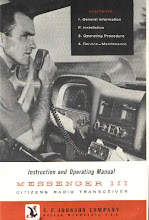If, for Derrida, the lesson which Hamlet can teach in regard to representation is that the ghost dictates (in Spectres of Marx), for Deleuze the play offers a pedagogy of virtuality. One of the key differences between Deleuze and Guattari and Derrida in their respective approaches to texts and hermeneutics is in part clarified by Deleuze’s Logique du sens. Here, to the structuralist triad he had identified in his 1967 essay—of designation of concepts, manifestation of subjects and signification of concepts—he adds the fourth term, sense. Sense names the additional space of relation between language and objects/bodies. Sense is a transcendental field not exhausted by the operations of signification. It is, as Philip Goodchild points out, an empty place (Goodchild 1996, 38-48). By contrast, however, to the negative theology of deconstruction by which the absent process of différance produces all meanings (Derrida 1982, 6), inscription in Deleuze and Guattari is a synthesis of recording of the Body without Organs and is part of a contact with material bodies, culture and politics. The empty space works not to produce meanings, but rather to give rise to events. In the chapter of Logique du sens entitled ‘Fifteenth Series: of Singularities’, Deleuze sets out to articulate the characteristics of what he calls singularities; these are of the order of the Event, which escapes all of its actualisations/realisations, but which hovers over or under these latter as their condition and their impossible horizon. Taking his distance from the Sartrean perspective which holds on to consciousness and hence to person and individual, Deleuze wishes in fact to speak of the transcendental field, within which
emissions of singularities insofar as they occur on an unconscious surface and possess a mobile, immanent principle of auto-unification through a nomadic distribution, radically distinct from fixed and sedentary distributions as conditions of the syntheses of consiousness. (Deleuze 1969/1990, 124-5/102)
Only when one acknowledges the pre-eminence of such singularities “do we tread at last on the field of the transcendental” (125/103). Since singularities, although they preside over the genesis of individuals and persons, do not exhaust the virtual through actualisations in bodies, individuals or persons, they belong to the same order as the Event. The battle, in Deleuze’s example, remains an event withdrawn from its actualisations on the field of battle per se: it is an incorporeal event. The event is non-localisable, then. Deleuze quotes Gilbert Simondon in support:
The living lives at the limit of itself, on its limit...The characteristic polarity of life is at the level of the membrane; it is here that life exists in an essential manner, as an aspect of a dynamic topology which itself maintains the metastability by which it exists. (Simondon cited Deleuze 1969/1990, 126/104)
If below are to be found events and singularities, on the edges at the membrane are what pass for beings, bodies and subjects. In effect, however, these latter are nothing more than individuations (as opposed to presupposed individuation: see Deleuze 1969/1990, 128/105) within a transcendental field. The idea of incorporeal events, then, while attesting to sense and retaining this in common with phenomenology, significantly departs from phenomenology in so far as force is returned the status foreclosed in the phenomenological tradition.[1]
[1] It may however be true then that Derrida continues a project that can be thought of as an ongoing radicalisation of concepts and problems introduced by Husserl (Moran 2000, 436-7), and that in that respect deconstruction is a phenomenology.
Wednesday, 2 July 2008
Subscribe to:
Post Comments (Atom)

No comments:
Post a Comment